Are you contemplating selling your home in Michigan but feeling overwhelmed by the myriad of options available? With the state’s housing inventory having surged 12% recently, and an impressive 37% of homes in Lyon Township achieving sale prices above their listing, it’s crucial to navigate this landscape wisely.
The choice between a traditional agent-assisted sale, going the For Sale By Owner (FSBO) route, or opting for cash buyers can significantly impact your financial outcome and selling timeline. Understanding the nuances of these strategies can help you tailor an approach that best aligns with your unique circumstances.
As you evaluate your options, consider the current market dynamics and how they relate to your specific property features and personal timeline. Are you in a hurry to sell due to a job relocation, or do you have the luxury of time to wait for the right buyer?
Your comfort level with market involvement and the potential financial returns will guide your decision-making process. By delving into these factors, you can uncover the best strategy to ensure a successful home sale in Michigan.
Key Highlights
- Assess your available time and how much stress you can handle. For sale by owner (FSBO) can take about 10-15 hours a week, while working with an agent typically needs only 1-3 hours.
- Compare potential net proceeds: traditional agent commissions usually range from $13,650 to $16,380, but FSBO or cash buyers might offer lower sale prices.
- Think about your property’s location and type. In Lyon Township, homes often sell for 37% above the list price, whereas slower markets might see an 18% price reduction.
- Consider the best time to sell. Spring listings can generate 23% more inquiries, while homes listed during the holidays often attract more serious buyers.
- Align your selling strategy with current market conditions. In Michigan, there’s been a 12% increase in inventory, and homes are taking an average of 45 days to sell.
Assessing Your Property’s Market Position and Timeline
When it comes to selling a home in Michigan’s dynamic real estate market, the landscape is changing rapidly, and understanding these shifts is crucial for successfully positioning your property. Inventory levels have surged by 12%, and homes are now spending an average of 45 days on the market statewide. This data point alone highlights the importance of a strategic approach tailored to your local conditions.
Market trends reveal striking regional disparities: in competitive areas such as Lyon Township, a remarkable 37% of homes are selling for more than their list price. Conversely, slower markets are witnessing price reductions in nearly 18% of listings. This dichotomy underscores the necessity for sellers to evaluate local market conditions carefully and develop pricing strategies that reflect them. Utilizing a low-rate home selling program can further enhance your selling strategy by minimizing commission costs. Furthermore, partnering with a local realtor can provide insights into Oakland County’s average home price to better inform your pricing strategy.
Additionally, properties in regions with approximately two months of inventory exhibit balanced market dynamics, indicating the need for strategic positioning. Timing is another critical factor; homes listed in the spring can attract a premium of 3.4% in metropolitan areas. This insight suggests that sellers should be mindful of seasonal trends when planning their listings.
Moreover, conducting pre-listing inspections can significantly streamline the selling process, potentially reducing negotiation periods by 40% in competitive markets. However, it’s essential to note the 30-day threshold, where sellers may need to consider price reductions to maintain buyer interest. By leveraging this data, sellers can formulate realistic timelines and adapt their selling strategies to align with the specific nuances of their market. Furthermore, consulting with a realtor can provide valuable insights into the local market and enhance your selling strategy.
Understanding Available Selling Methods and Their Trade-offs
Many homeowners are still drawn to the allure of selling For Sale By Owner (FSBO), hoping to pocket more profit by bypassing commission fees. While this approach can indeed maximize your earnings, it often demands significant time, energy, and a solid understanding of the market to pull off successfully. Additionally, the Owner Advocate Program offers homeowners a comprehensive solution by allowing them to select from multiple selling strategies via a single contact point.
Alternatively, opting for a traditional agent brings a wealth of professional expertise to the table. Agents can guide you through pricing strategies, effective marketing, and negotiations—all while charging a standard commission of 5-6% of the sale price. For busy individuals or those unfamiliar with real estate transactions, this route can relieve stress and streamline the selling process. The Owner Advocate Program, for instance, simplifies the home-selling experience by reducing agent/service coordination.
Then, there are cash buyers—an appealing option for those who prioritize speed and certainty in their sale. These buyers typically offer below-market prices but can facilitate quick, hassle-free closings. This might be ideal if you’re in a time crunch or need to relocate urgently, but it’s important to weigh the trade-off of potential profits against the convenience offered. Additionally, cash offers can save you thousands on traditional closing costs, making them a viable solution for many sellers to maximize savings.
Market conditions also play a critical role in your selling strategy. Each method has its strengths and weaknesses depending on whether it’s a buyer’s or seller’s market. For instance, in a seller’s market, you may find FSBO successful due to high demand, while in a buyer’s market, working with an agent might yield better results. The Owner Advocate Program focuses on either speed or value maximization, thus providing tailored strategies suited for each market condition.
Ultimately, as a seller, it’s essential to assess your timeline, desired sale price, and your capacity to manage the selling process. Understanding these trade-offs allows you to make informed decisions that align with your unique situation and goals. Choosing the right selling strategy can significantly impact your experience and outcome in the real estate market.
Evaluating Your Personal Involvement and Expertise
To determine your readiness, start with a self-assessment checklist tailored for Michigan homeowners. Evaluate your available time: if you’re considering a For Sale By Owner (FSBO) approach, be prepared to dedicate 10-15 hours each week to manage showings and negotiations. In contrast, working with an agent can streamline this process, reducing your involvement to just 1-3 hours a week.
Next, consider your expertise. Understanding legal requirements is imperative—proper documentation can prevent 78% of post-sale disputes. Moreover, having a firm grasp of local market dynamics is essential; neighborhood comparative analysis can influence 89% of listing prices, impacting your home’s marketability.
Your negotiation skills will significantly affect your final sale price as well. Research shows that effective counter offer strategies can enhance sale prices by 5-8%. The ability to remain objective during negotiations is vital, as maintaining a clear head can preserve 81% of buyer-seller relationships, ensuring smoother transactions.
Calculating Financial Implications of Each Strategy
Understanding the financial implications of various strategies can be the difference between a profitable transaction and a costly mistake. The average commission costs for traditional agent-assisted sales can range from $13,650 to $16,380 on a home priced at $273,300. This figure highlights the significant impact that agent fees can have on your net proceeds.
Navigating the home selling landscape requires a careful evaluation of both costs and potential returns. Sellers often grapple with the choice between hiring a real estate agent or opting for a For Sale By Owner (FSBO) approach. While FSBO can save on commission fees, it typically results in lower sale prices, which can offset those savings.
Consider the full scope of expenses involved in selling your home. Marketing costs, which may include professional photography, virtual tours, and MLS listings, can add up quickly. Additionally, preparing your home for sale—through repairs and staging—could range from $3,000 to $10,000. Don’t forget about closing costs either, which average around 2.7% of the sale price in Michigan.
Another critical factor is the potential for capital gains tax exemptions, which apply to primary residences that meet occupancy requirements, allowing sellers to exclude up to $250,000 from capital gains taxes.
Evaluating these financial elements is essential. By taking the time to calculate the costs and benefits of each selling strategy, you can make an informed decision that aligns with your financial goals. Whether you choose to work with an agent or go the FSBO route, being equipped with the right information can significantly enhance your selling experience and outcomes.
Matching Market Conditions With Your Selling Goals
As a seller, timing is everything. Listings in the spring season not only generate 23% more buyer inquiries but also attract a larger pool of interested parties. Conversely, homes listed during the holiday season often draw more serious buyers who are ready to make decisions quickly. Understanding these seasonal trends can give you a competitive edge.
Moreover, regional differences in market dynamics can impact your selling strategy. For example, urban centers tend to experience faster turnover rates, while areas like Lyon Township are witnessing impressive appreciation rates of 9.2%. It’s crucial to assess where your property stands in this landscape and how local conditions can influence your sale.
Buyer preferences play a vital role as well. For instance, waterfront properties command a 22% premium, while new constructions have their own unique pricing challenges. By considering your property’s positioning within these various market conditions, you can make informed decisions that align with your timeline and financial aspirations.
Additionally, with statewide inventory levels rising by 18%, it’s essential to factor this into your strategy. A well-timed approach, informed by current trends and buyer behavior, can mean the difference between a quick sale and prolonged negotiations. By leveraging this knowledge, you can effectively navigate the complexities of the market and achieve your selling goals.
In Summary
Selling a home in Michigan can present a unique set of challenges for homeowners as they navigate various strategies available to them. Each approach comes with its own set of potential rewards and risks, making it essential to carefully evaluate personal needs and market conditions before deciding on a strategy.
Rather than searching for a universal solution, homeowners should focus on choosing a method that aligns with their comfort and peace of mind during the selling process. With the right guidance from experts like Ben Lang and The Collective Agency, homeowners can find the best strategy tailored to their individual circumstances.
As a premier real estate agency, The Collective Agency understands the nuances of the Michigan housing market and can provide invaluable support throughout the selling journey. Our team is dedicated to helping you explore various selling strategies while considering your unique situation and preferences.
We pride ourselves on creating a personalized experience that helps you achieve your real estate goals without unnecessary stress. When you partner with us, you can rest assured that you are making informed decisions to successfully sell your home in Michigan.






